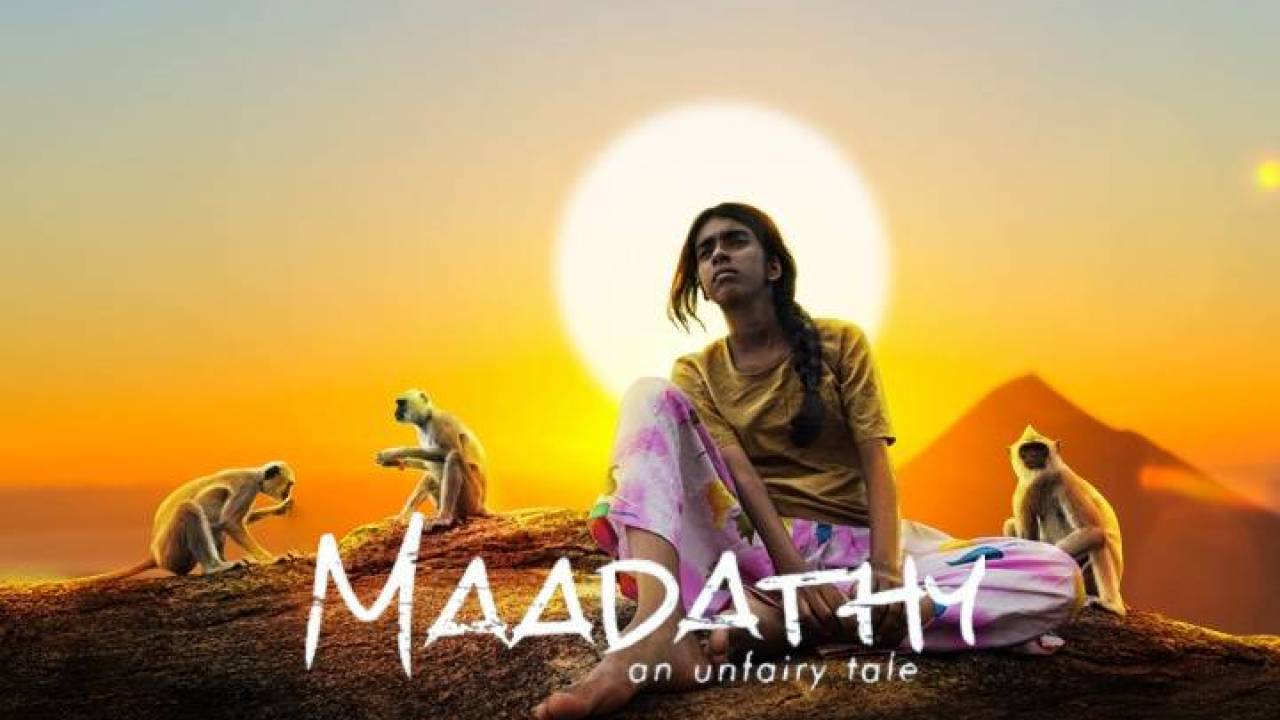Regional Cinema
Maadathy, An Unfairy Tale Review: It is a Problematic Tamil Film On Women’s Disempowerment

Maadathy, An Unfairy Tale (NeeStream)
Directed by Leena Manimekalai
Rating: ** ½
Maadathy, An Unfairy Tale: This is a very disturbing film. Not only because it features two reprehensible rape sequences (one of them a gangrape of a minor) but also because the director Leena Manimekalai’s basic premise is loosely applicable to social reality. She wants us to feel a collective outrage when her free-spirited young protagonist Yosana (Ajmina Kasim) is brutalized.
Of course we do. But the underlining subtext of rebellion—that Yosana will roam freely in the dark jungles in the night no matter what the price—is blinding in its naivete.
When in the jungle , self-preservation is only possible when one follows the laws of the jungle. Yosana is treated as some kind of inviolable deity for most of the film. She is free to roam the jungles , explore her sexuality(there is a beautiful moment when she watches a man bathe nude from behind the rocks, a Ram Teri Ganga Maili in reverse), defy all the norms of safety and wellbeing…only to pay a heavy price for her insistence on being a butterfly among wolves.
Spirit crushed, Yosana is now elevated to deification, miraculously replacing the face of the goddess in a temple with hers.
In the way the narrative fuses a contemporary fable of men using , deifying and defiling women at will, with the myth of the empowered goddess whose power comes at a great price, the director seems to have taken on thematic thrusts that are far wider than the spectrum offered in the narrative.
What works are the wonderful visuals of the forest: primeval, pristine , predatory, throbbing with an unharnessed energy, Yosana romping in the forest unheedful of the dangers, is a sturdy if somewhat over-intellectualized metaphor for the dangers that women face everyday.
What’s tragically absent is a dependable voice of reason behind the impassioned cry for female empowerment that runs across the narrative.The end result is an inconsistent but important film.
At times the visual and emotional content coalesce effortlessly. At other times, the two elements of the storytelling seem far distanced from one another. Also the strange prologue where a newly-married woman on the way to the temple with her horny husband suddenly gets her period , is contrived and unconvincing.
There was no need to bracket Yosana’s story with a prologue and an epilogue. She could stand on her own. Isn’t that what the film is trying to prove?
